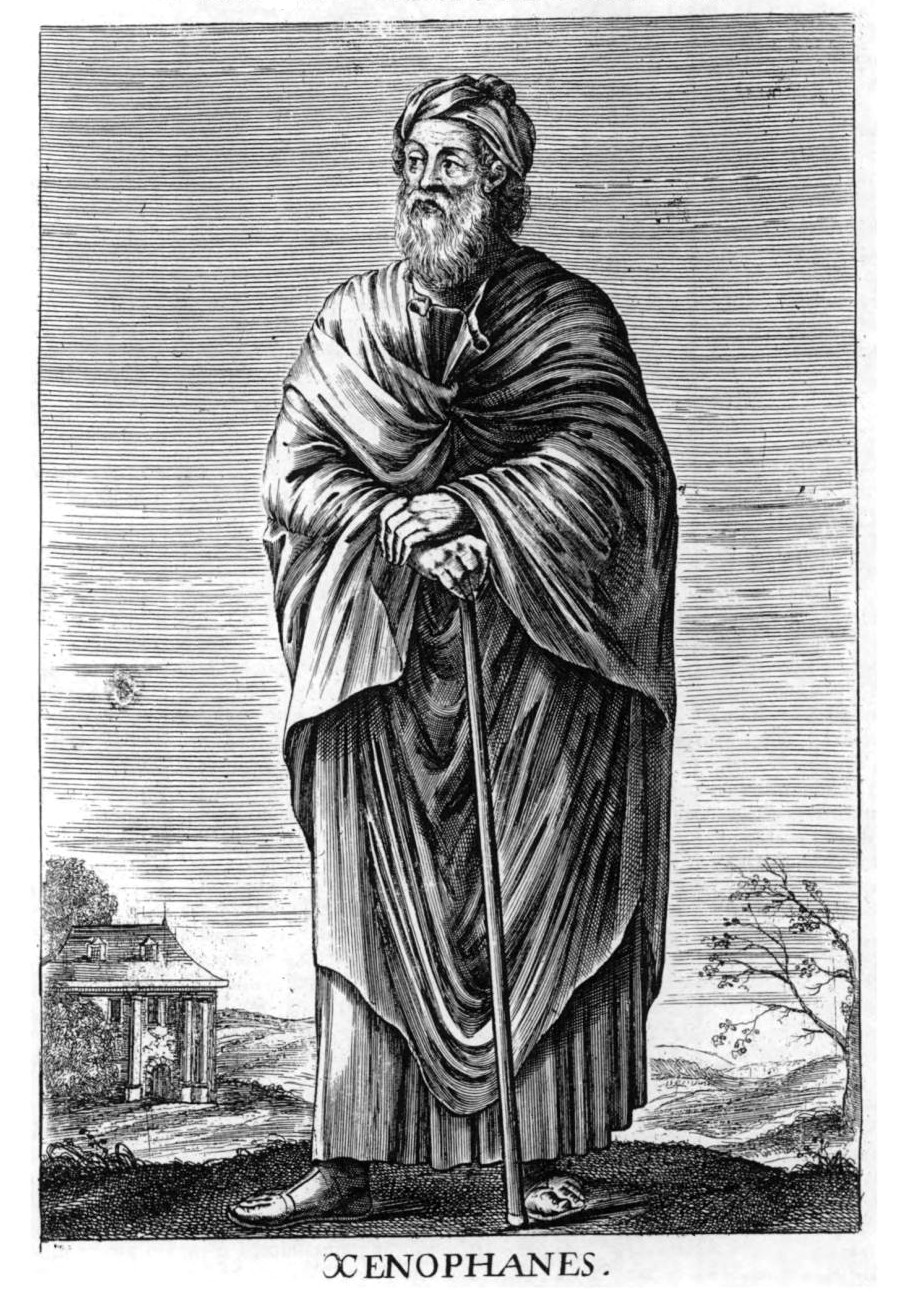|
Nontheist
Nontheism or non-theism is a range of both religious and non-religious attitudes characterized by the absence of espoused belief in the existence of God or gods. Nontheism has generally been used to describe apathy or silence towards the subject of gods and differs from atheism, or active disbelief in any gods. It has been used as an umbrella term for summarizing various distinct and even mutually exclusive positions, such as agnosticism, ignosticism, ietsism, skepticism, pantheism, pandeism, transtheism, atheism ( strong or positive, implicit or explicit), and apatheism. It is in use in the fields of Christian apologetics and general liberal theology. An early usage of the hyphenated term ''non-theism'' is attributed to George Holyoake in 1852. Within the scope of nontheistic agnosticism, philosopher Anthony Kenny distinguishes between agnostics who find the claim "God exists" uncertain and theological noncognitivists who consider all discussion of God to be meaningless. Some ... [...More Info...] [...Related Items...] OR: [Wikipedia] [Google] [Baidu] |
Nontheistic Religion
Nontheistic religions (not to be confused with atheism) are traditions of religious belief, thought within a religious context—some otherwise aligned with theism, others not—in which nontheism informs religious beliefs or practices. Nontheism has been applied and plays significant roles in Hinduism, Buddhism, and Jainism. While many approaches to religion exclude nontheism by definition, some inclusive definitions of religion show how religious practice and belief do not depend on the presence of a god or gods. For example, Paul James (academic), Paul James and Peter Mandaville distinguish between religion and spirituality, but provide a definition of the term that avoids the usual reduction to "religions of the book": Buddhism Existence of gods The Gautama Buddha, Buddha said that ''Deva (Buddhism), devas'' (translated as "gods") do exist, but they were regarded as still being trapped in ''Samsara (Buddhism), samsara'', and are not necessarily wiser than humans. ... [...More Info...] [...Related Items...] OR: [Wikipedia] [Google] [Baidu] |
Irreligion
Irreligion is the absence or rejection of religious beliefs or practices. It encompasses a wide range of viewpoints drawn from various philosophical and intellectual perspectives, including atheism, agnosticism, religious skepticism, rationalism, secularism, and non-religious spirituality. These perspectives can vary, with individuals who identify as irreligious holding diverse beliefs about religion and its role in their lives. Relatively little scholarly research was published on irreligion until around the year 2010. Overview Over the past several decades, the number of secular persons has increased, with a rapid rise in the early 21st century, in many countries. In virtually every high-income country and many poor countries, religion has declined. Highly secular societies tend to be societally healthy and successful. Social scientists have predicted declines in religious beliefs and their replacement with more scientific/naturalistic outlooks (secularizati ... [...More Info...] [...Related Items...] OR: [Wikipedia] [Google] [Baidu] |
Ignosticism
Ignosticism or igtheism is the idea that the question of the existence of God is meaningless because the word "God" has no coherent and unambiguous definition. Terminology The term ''ignosticism'' was coined in 1964 by Sherwin Wine, a former Reform rabbi and a founding figure of Humanistic Judaism. Distinction from theological noncognitivism Ignosticism and theological noncognitivism are similar although whereas the ignostic says "every theological position assumes too much about the concept of God", the theological noncognitivist claims to have no concept whatever to label as "a concept of God", but the relationship of ignosticism to other nontheistic views is less clear. While Paul Kurtz finds the view to be compatible with both weak atheism and agnosticism,Kurtz, ''New Skepticism'', 220: "Both theism and agnosticismare consistent with igtheism, which finds the belief in a metaphysical, transcendent being basically incoherent and unintelligible." other philosophers consider i ... [...More Info...] [...Related Items...] OR: [Wikipedia] [Google] [Baidu] |
Pandeism
Pandeism, or pan-deism, is a theological doctrine that combines aspects of pantheism with aspects of deism. Unlike classical deism, which holds that the creator deity does not interfere with the universe after its creation, pandeism holds that such an entity became the universe and ceased to exist as a separate entity. Pandeism (as it relates to deism) purports to explain why God would create a universe and then appear to abandon it, and pandeism (as it relates to pantheism) seeks to explain the origin and purpose of the universe. Various theories suggest the coining of ''pandeism'' as early as the 1780s. One of the earliest unequivocal uses of the word with its present meaning was in 1859 with Moritz Lazarus and Heymann Steinthal. Definition ''Pandeism'' is a hybrid blend of the root words ''pantheism'' and ''deism'' ( and 'god'). The earliest use of ''pandeism'' appears to have been 1787, with another usage found in 1838, a first appearance in a dictionary in 1849 ... [...More Info...] [...Related Items...] OR: [Wikipedia] [Google] [Baidu] |
Christian Apologetics
Christian apologetics (, "verbal defense, speech in defense") is a branch of Christian theology that defends Christianity. Christian apologetics have taken many forms over the centuries, starting with Paul the Apostle in the early church and Patristic writers such as Origen, Augustine of Hippo, Justin Martyr and Tertullian, then continuing with writers such as Thomas Aquinas, Duns Scotus, William of Ockham and Anselm of Canterbury during Scholasticism. Blaise Pascal was an active Christian apologist during the 17th century. In the modern period, Christianity was defended through the efforts of many authors such as John Henry Newman, G. K. Chesterton and C. S. Lewis, as well as G. E. M. Anscombe. History Jewish precursors According to Edgar J. Goodspeed in the first century CE Jewish apologetic elements could be seen in works such as The Wisdom of Solomon, Philo's ''On the Contemplative Life'' and more explicitly in Josephus' '' Against Apion''. Apostolic and post-aposto ... [...More Info...] [...Related Items...] OR: [Wikipedia] [Google] [Baidu] |
Umbrella Term
Hypernymy and hyponymy are the wikt:Wiktionary:Semantic relations, semantic relations between a generic term (''hypernym'') and a more specific term (''hyponym''). The hypernym is also called a ''supertype'', ''umbrella term'', or ''blanket term''. The hyponym names a subset, subtype of the hypernym. The semantic field of the hyponym is included within that of the hypernym. For example, "pigeon", "crow", and "hen" are all hyponyms of "bird" and "animal"; "bird" and "animal" are both hypernyms of "pigeon", "crow", and "hen". A core concept of hyponymy is ''type of'', whereas ''instance of'' is differentiable. For example, for the noun "city", a hyponym (naming a type of city) is "capital city" or "capital", whereas "Paris" and "London" are instances of a city, not types of city. Discussion In linguistics, semantics, general semantics, and ontology components, ontologies, hyponymy () shows the relationship between a generic term (hypernym) and a specific instance of it (hyponym ... [...More Info...] [...Related Items...] OR: [Wikipedia] [Google] [Baidu] |
Anthony Kenny
Sir Anthony John Patrick Kenny (born 16 March 1931) is a British philosopher whose interests lie in the philosophy of mind, ancient and scholastic philosophy, the philosophy of religion, and the philosophy of Wittgenstein of whose literary estate he is an executor. With Peter Geach, he has made a significant contribution to analytical Thomism, a movement whose aim is to present the thought of St. Thomas Aquinas in the style of analytic philosophy. He is a former president of the British Academy and the Royal Institute of Philosophy. Education and early career Kenny was born in Liverpool on 16 March 1931, the son of John and Margaret (Jones) Kenny. Kenny initially trained as a Roman Catholic priest at the Venerable English College, Rome, where he received a degree of Licentiate of Sacred Theology (STL) degree. He was ordained in 1955 and served as a curate in Liverpool (1959–63). Having received his DPhil from the University of Oxford ( St Benet's Hall) in 1961, he also wo ... [...More Info...] [...Related Items...] OR: [Wikipedia] [Google] [Baidu] |
Deism
Deism ( or ; derived from the Latin term '' deus'', meaning "god") is the philosophical position and rationalistic theology that generally rejects revelation as a source of divine knowledge and asserts that empirical reason and observation of the natural world are exclusively logical, reliable, and sufficient to determine the existence of a Supreme Being as the creator of the universe. More simply stated, Deism is the belief in the existence of God—often, but not necessarily, an impersonal and incomprehensible God who does not intervene in the universe after creating it, solely based on rational thought without any reliance on revealed religions or religious authority. Deism emphasizes the concept of natural theology—that is, God's existence is revealed through nature. Since the 17th century and during the Age of Enlightenment, especially in 18th-century England, France, and North America, various Western philosophers and theologians formulated a critical reject ... [...More Info...] [...Related Items...] OR: [Wikipedia] [Google] [Baidu] |
Naturalism (philosophy)
In philosophy, naturalism is the idea that only Scientific law, natural laws and forces (as opposed to supernatural ones) operate in the universe. In its primary sense, it is also known as ontological naturalism, metaphysical naturalism, pure naturalism, philosophical naturalism and antisupernaturalism. "Ontological" refers to ontology, the philosophical study of what exists. Philosophers often treat naturalism as equivalent to materialism, but there are important distinctions between the philosophies. For example, philosopher Paul Kurtz argued that nature is best accounted for by reference to Matter, material principles. These principles include mass, energy, and other Physical property, physical and Chemical property, chemical properties accepted by the scientific community. Further, this sense of naturalism holds that spirits, Deity, deities, and ghosts are not real and that there is no "Teleology, purpose" in nature. This stronger formulation of naturalism is commonly ref ... [...More Info...] [...Related Items...] OR: [Wikipedia] [Google] [Baidu] |
Antitheism
Antitheism, also spelled anti-theism, is the philosophical position that theism should be opposed. The term has had a range of applications. In secular contexts, it typically refers to direct opposition to the belief in any deity. Etymology The word ''antitheism'' (or hyphenated ''anti-theism'') has been recorded in English since 1788. The etymological roots of the word are the Greek '' anti'' and ''theos.'' The ''Oxford English Dictionary'' defines ''antitheist'' as "One opposed to belief in the existence of a god". The earliest citation given for this meaning dates from 1833. The term was likely coined by Pierre-Joseph Proudhon. Opposition to theism ''Antitheism'' has been adopted as a label by those who regard theism as dangerous, destructive, or encouraging of harmful behavior. Christopher Hitchens (2001) wrote: Opposition to the idea of God Other definitions of antitheism include that of the French Catholic philosopher Jacques Maritain (1953), for whom it is "an ac ... [...More Info...] [...Related Items...] OR: [Wikipedia] [Google] [Baidu] |
Deus Absconditus
''Deus absconditus'' (Latin: "hidden God") refers to the Christian theological concept of the fundamental unknowability of the essence of God. The term is derived from the Old Testament of the Christian Bible, specifically from the Book of Isaiah: "Truly, you are a God who hides himself, O God of Israel, the Savior" (). Quotes from the English and Greek Bible referring to the hidden God are listed in "Deus Absconditus - The Hidden God" by M.M Nikoletseas pp 21-27 This concept was particularly important for the theological thought of the medieval Christian theologians Thomas Aquinas, Nicholas of Cusa,, John Scotus Eriugena and Martin Luther. "The precise manner in which God is not visible by man is not always clear, often because of imprecision in translation. For example in the English translation God hides himself, while in the Greek translation man cannot see God. In the case in which man cannot see God we may not necessarily conclude that God is hiding; there may be other re ... [...More Info...] [...Related Items...] OR: [Wikipedia] [Google] [Baidu] |
Harvey Cox
Harvey Gallagher Cox Jr. (born May 19, 1929) is an American theologian who served as the Hollis Professor of Divinity at Harvard Divinity School, until his retirement in October 2009. Cox's research and teaching focus on theological developments in world Christianity, including liberation theology and the role of Christianity in Latin America. Early life and education Cox was born on May 19, 1929, in Phoenixville, Pennsylvania, to Dorothea Cox and Harvey Gallagher. He was raised in Malvern, Pennsylvania. After a stint in the US Merchant Marine, Cox attended the University of Pennsylvania and graduated in 1951 with a Bachelor of Arts degree with honors in history. He earned a Bachelor of Divinity degree from Yale Divinity School in 1955, and a Doctor of Philosophy degree in the history and philosophy of religion from Harvard University in 1963. Career Cox was ordained as an American Baptist minister in 1957, and started teaching as an assistant professor at the Andover Ne ... [...More Info...] [...Related Items...] OR: [Wikipedia] [Google] [Baidu] |





